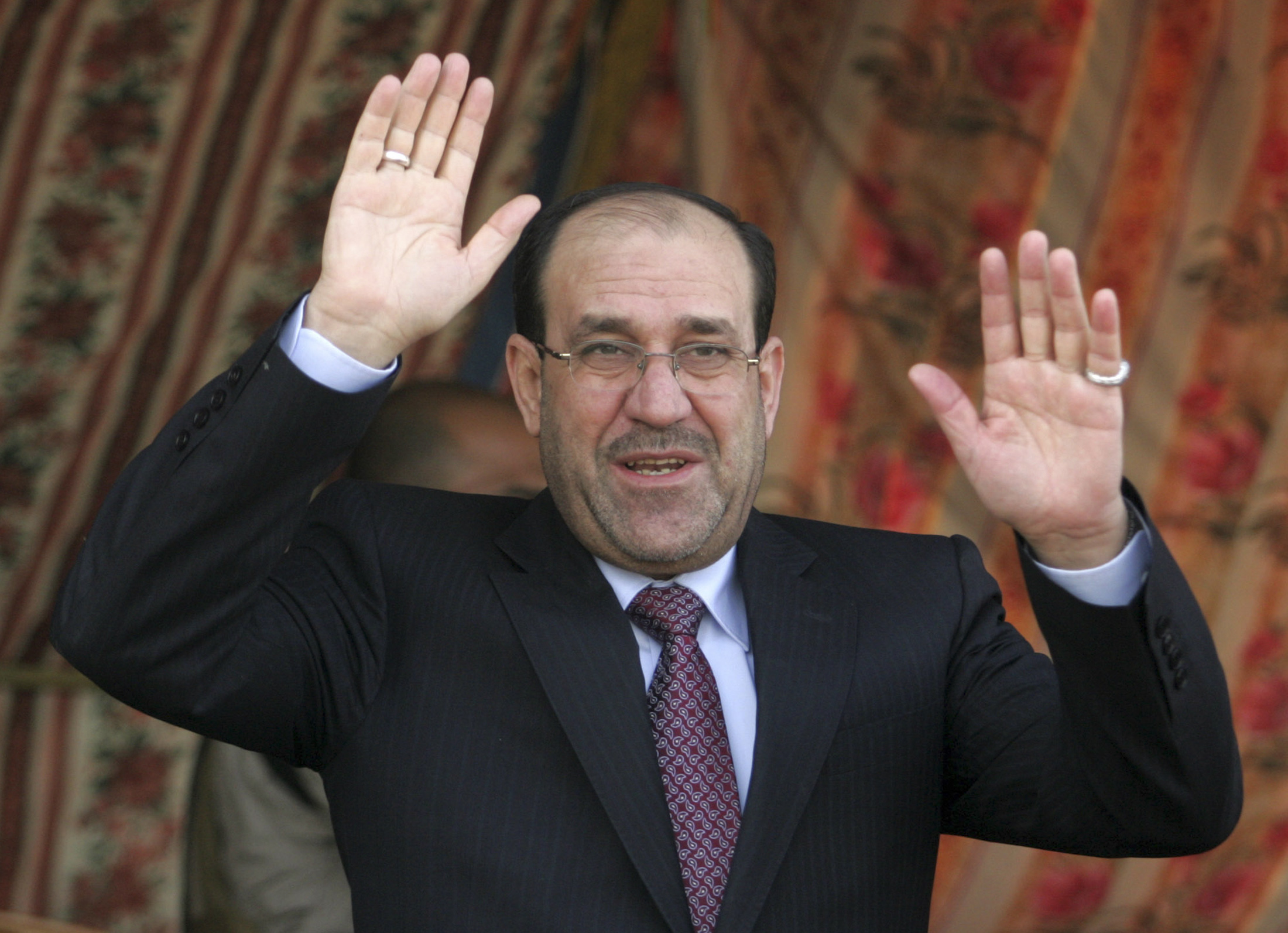MALIKI DEFIANT AS US BACKS NEW PRIME MINISTER IN IRAQ
Iraqi Prime Minister Nuri al-Maliki

NEW DELHI: An increasingly isolated Nouri-al-Maliki, currently the Prime Minister of Iraq, appeared defiant in a televised address where he rejected Iraqi President Fuad Masoum nomination of politician Haider al-Ebadi as the country’s next Prime Minister. Maliki asserted that the impending appointment had no legitimacy, in a statement that directly confronts former allies the United States and Iran, who have been quick to throw their support behind Ebadi, blaming Maliki, in part, for the advance of Islamic State militants in Iraq.
The US, which was instrumental in propping Maliki to power, has in the past few days issued statements supporting Ebadi, reaffirming financial and military assistance to the to-be Prime Minister. The US’ relations with Maliki have soured over the latter’s failure to form a more inclusive government, with the Obama administration highlighting sectarian tensions as a key reason for the rapid advancement of militants in the country’s north.
“The United States fully supports president Fuad Masoum in his role as guarantor of the Iraqi constitution,” US State Department spokesperson Marie Harf said, adding “we reaffirm our support for a process to select a prime minister who can represent the aspirations of the Iraqi people by building a national consensus and governing in an inclusive manner.”
Maliki, who has been serving as a caretaker Prime Minister since an inconclusive election in April, has, in turn, vowed to continue pressing for a third term in office and threatened to submit a complaint against the President’s actions. “I will submit today an official complaint to the federal court against the president of the Republic for committing a clear constitutional violation for the sake of political calculations,” Maliki said.
The US, which began conducting targeted air strikes against IS militants last week -- as thousands of people belonging to the Yazidi minority group were under threat, has played a behind the scenes role in looking for Maliki’s successor. The US has repeatedly highlighted the need for an inclusive government, as IS militants belong largely to the Sunni faction, whilst Maliki’s administration remains heavily Shia dominated.
Ironically, the US, which invaded Iraq in 2003 and has supported Maliki aggressively till now, played on the Shia-Sunni-Kurd sectarian divide in Iraq, with the political developments that have followed needing to be located in this context.
When Islamic State militants began their advance with the fall of Falluja earlier this year, he Brussels-based International Crisis Group (ICG) said in a report that "Fallujah residents held no brief for ISIL, but their hatred of the Iraqi army -- seen as the instrument of a Shiite, sectarian regime, directed from Tehran, that discriminates against Sunnis in general and Anbar in particular -- ran even deeper.” The statement is perhaps applies in equal measure to the events of currently taking shape, and is reflective of policies in Iraq that have come to acquire a discriminatory character at the behest of a government strongly supported by the US.
The current crisis has forced the US to work together with Iran, with whom it has strained relations, as both countries had supported the Maliki administration and Iran, particularly, is concerned about the spillover effects of a Sunni militant movement. Both countries have sent military equipment and reinforcements to Iraq to aid the administration in battling the militant advance. However, Iran has hit out at the US for meddling in Iraq’s internal politics, with Iran’s leader Ayatollah Ali Khamenei saying, “American authorities are trying to portray this as a sectarian war, but what is happening in Iraq is not a war between Shia and Sunnis,” and adding that the US using sunni militants to serve its own vested interests. "We strongly oppose the intervention of the US and others in the domestic affairs of Iraq," Khamenei reportedly said. "The US aims to bring its own blind followers to power since the US is not happy about the current government in Iraq,” the leader added.



